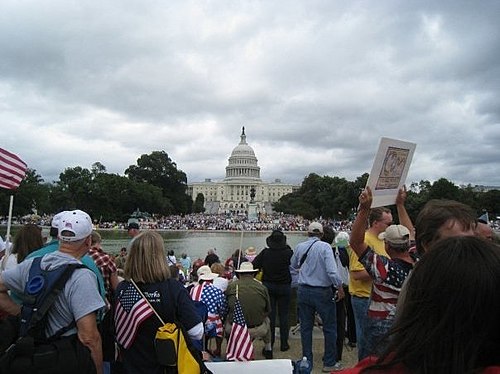Populismnoun
(philosophy) A political doctrine or philosophy that proposes that the rights and powers of ordinary people are exploited by a privileged elite, and supports their struggle to overcome this.
Populismnoun
(derogatory) The practice of appealing to the interests of the common people.
Populismnoun
The political doctrines advocated by the People's party.
Populismnoun
the political doctrine that supports the rights and powers of the common people in their struggle with the privileged elite
Populismnoun
a political approach that strives to appeal to ordinary people who feel that their concerns are disregarded by established elite groups
Populismnoun
support for populist politicians or policies
Populismnoun
the quality of appealing to or being aimed at ordinary people
Populism
Populism refers to a range of political stances that emphasise the idea of and often juxtapose this group against . The term dates back to the Populares, (Latin for 'favoring the people', singular popularis) who were a political faction in the late Roman Republic who favoured the cause of the plebeians (the commoners), and has been applied to various politicians, parties, and movements since that time, although it has rarely been chosen as a self-description.
Progressivismnoun
A political ideology that favours progress towards better conditions in society.
Progressivismnoun
the political orientation of those who favor progress toward better conditions in government and society
Progressivism
Progressivism is a political philosophy in support of social reform. Based on the idea of progress in which advancements in science, technology, economic development and social organization are vital to the improvement of the human condition, progressivism became highly significant during the Age of Enlightenment in Europe, out of the belief that Europe was demonstrating that societies could progress in civility from uncivilized conditions to civilization through strengthening the basis of empirical knowledge as the foundation of society.
























